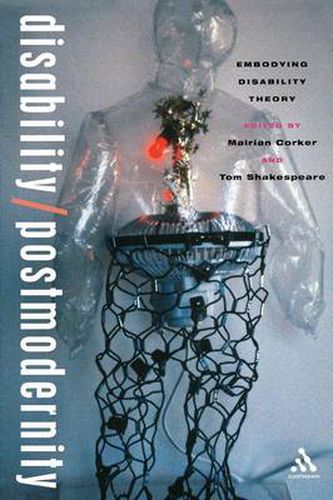Readings Newsletter
Become a Readings Member to make your shopping experience even easier.
Sign in or sign up for free!
You’re not far away from qualifying for FREE standard shipping within Australia
You’ve qualified for FREE standard shipping within Australia
The cart is loading…






With contributions from leading scholars in the USA, Canada, the UK, Switzerland, Japan, India, Australia and Jordan, Disability and Postmodernity is the first book to study disability within the context of the postmodern world of the twenty-first century. Organized into three sections, the volume opens with an exploration of theoretical perspectives, looking especially at phenomenology, at the body, and at concepts of difference and identity. The second section deals with culture, discussing aesthetics, narrative, film, architecture and design, while the final section explores social practice, including chapters on disabled childrens’ perspectives, sexual identity and madness and mental distress .The collection creates a bridge between social science perspectives on disability (predominant in disability studies in the UK for example) and humanities perspectives (which dominate the US approach). The authors aim to demystify the concept of postmodernity and to suggest ways in which it fosters a holistic approach to the study of disability that better represents and reflects the complexity of disabled people’s experience. This is a unique and important contribution to both disability studies and social and cultural theory.
$9.00 standard shipping within Australia
FREE standard shipping within Australia for orders over $100.00
Express & International shipping calculated at checkout
With contributions from leading scholars in the USA, Canada, the UK, Switzerland, Japan, India, Australia and Jordan, Disability and Postmodernity is the first book to study disability within the context of the postmodern world of the twenty-first century. Organized into three sections, the volume opens with an exploration of theoretical perspectives, looking especially at phenomenology, at the body, and at concepts of difference and identity. The second section deals with culture, discussing aesthetics, narrative, film, architecture and design, while the final section explores social practice, including chapters on disabled childrens’ perspectives, sexual identity and madness and mental distress .The collection creates a bridge between social science perspectives on disability (predominant in disability studies in the UK for example) and humanities perspectives (which dominate the US approach). The authors aim to demystify the concept of postmodernity and to suggest ways in which it fosters a holistic approach to the study of disability that better represents and reflects the complexity of disabled people’s experience. This is a unique and important contribution to both disability studies and social and cultural theory.